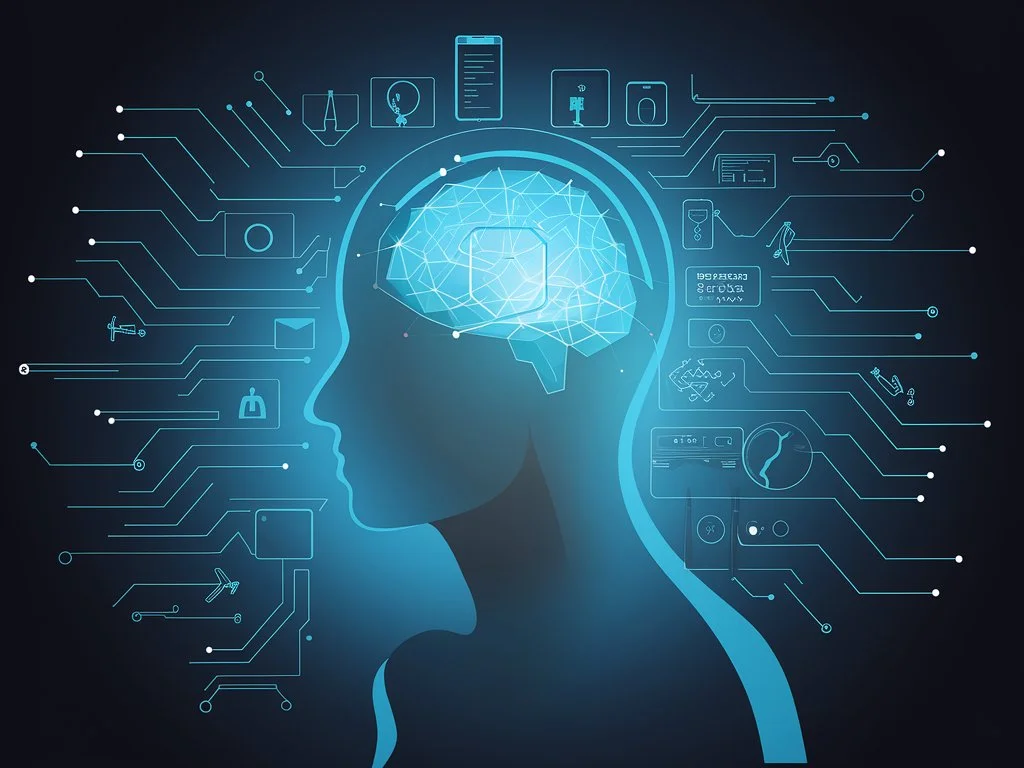In today’s fast-paced world, where stress and anxiety seem to be constant companions, mental health tech offers a ray of hope. By leveraging technological advancements, we can now access tools and innovations designed to support our mental well-being like never before.
From mobile apps to wearable devices, these technologies are reshaping how we approach mental health care, making it more accessible, personalized, and effective.
Mental Health Tech
Mental health tech refers to technological innovations specifically developed to enhance mental well-being. These innovations encompass various tools and applications designed to monitor, support, and improve mental health outcomes. Whether you’re managing stress, seeking therapy, or simply looking to boost your overall well-being, mental health tech has something to offer.
The Rise of Mobile Apps in Mental Health
Mobile Apps: A Pocket-Sized Solution
One of the most accessible forms of mental health tech is mobile apps. These apps offer convenient mental health services and highlight the role of a mental health technician in different settings. Platforms like Indeed.com often list a variety of mental health technician jobs available.
Whether someone aims to become a psych tech or enroll in a technician program, mobile apps provide access to career and resume resources. Mental health technicians work in psychiatric and behavioral health settings, participating in daily living activities for patients. Technicians gain hands-on experience and learn to assist patients facing mental health issues.
The job outlook shows a high demand for certified mental health professionals. Students with a high school diploma or equivalent may start by pursuing a certification, associate degree, or licensure. These roles require strong communication skills, compassionate care, and the ability to create a safe environment while handling patients’ daily tasks.
Personalized Support at Your Fingertips
Mobile apps provide insights into licensure, job details, and salary search features for aspiring mental health technicians. They include resources like full job descriptions for various healthcare settings, ranging from behavioral health technicians to roles in substance abuse care facilities. Information about technician programs and training is also available.
Many apps focus on joint commission standards to help users choose appropriate university programs. Whether it’s about understanding mental health treatment, navigating healthcare facilities, or exploring college credit options, these apps guide aspiring professionals. They help users play a crucial role in patient care and nursing assistance.
With details on licensure and credentials, apps help users understand the scenarios in which technicians work. This improves patient care, especially for those needing compassionate support in daily tasks. Mobile apps also provide employer resources, profile insights, and other tools for aspiring mental health professionals.
Career Empowerment and Resources
The journey toward mental health care careers can be demanding, but the right tools make a difference. Mobile apps allow users to explore career opportunities with clarity, from becoming certified technicians to understanding various healthcare units. These resources make it easier to pursue aspirations confidently.
The apps provide essential career information, from certified mental health technician programs to roles in inpatient or outpatient settings. They cover everything from observational skills to further education in related fields. Mobile apps are vital for gaining comprehensive career profiles, including employer resources and insights.
Apps empower those pursuing mental health professions by breaking down complex information. Users can explore details on how to gain observational skills, apply ethical standards, and offer compassionate care to patients. With clear paths and accessible learning, these tools make healthcare careers achievable.
Also Read: Health Tech: Mind-Blowing Innovations Transforming Your Well-Being Today
Wearable Devices: Integrating Wellness into Daily Life
Wearable Technology: Beyond Fitness Tracking
Wearable devices have evolved beyond counting steps and monitoring heart rates; they now include features to support mental health.
For instance, smartwatches can play an important role in supporting individuals facing mental health challenges, such as those undergoing training to become mental health technicians.
These devices can continuously monitor physiological stress indicators—like heart rate variability and skin conductance—giving insights into emotional well-being that are crucial for mental health conditions and their early intervention.
Furthermore, including developmental features helps individuals with developmental disabilities track their emotional responses throughout the day.
Integrating mental health support within wearable technology means that roles like psychiatric technicians, counselors, and behavioral health workers are better equipped with data for proactive care.
The role of mental health technicians and psychiatric technicians is expanding within the mental health field, including allied health services that support patients 24 hours a day.
With a high demand for mental health services, these professionals are trained in healthcare environments and mental health facilities, facing requirements that vary depending on the work environment.
Indeed.com lists numerous job opportunities, highlighting a promising outlook for those interested in becoming a mental health technician.
Continuous monitoring through wearable devices can identify mental health conditions early and even support work experience initiatives, such as on-the-job training for allied health positions.
Wearable technology facilitates work environments where health technicians, from entry-level roles to those with mental health technician certification, can offer better patient care.
As these healthcare professionals may work in clinics or community units within a local area, wearable technology supports a rewarding career that aligns with the role of mental health in daily life.
Continuous Monitoring for Holistic Wellness
The real-time data collected by wearable devices enables continuous monitoring of mental health metrics. This data can benefit psychiatric technicians, individuals seeking a career as a mental health technician, or those simply looking for the right training programs in health sciences.
Moreover, becoming a mental health technician can be an entry-level career choice, offering substantial rewards for those passionate about healthcare.
The requirements for this role, such as completing courses psychology courses, having a GED certificate, or passing a drug screen, are often outlined on Indeed.com, making it easier for applicants to understand the path toward becoming certified.
The enrollment process may include additional verification, including a criminal background check and submission of required documents.
Applicants must also complete security checks and provide competency proof via on-the-job training and experience in the mental health field.
Working as a mental health technician involves caring for patients, supporting those with substance use issues, and maintaining a calm demeanor in stressful situations.
It often requires vocational training, courses in pharmacology, and even certifications like CNA, depending on the job requirements. Allied health professionals, including therapists and technicians, play a crucial role in healthcare and must be prepared for administrative tasks, such as privacy policy compliance and contact with patients.
Wearable technology assists by streamlining data collection and supporting the work experience needed for a career in behavioral health.
The role is dynamic and can provide a fulfilling pathway for those in the U.S. interested in pursuing healthcare jobs, especially when combined with financial aid options like FAFSA.
These devices also help bridge the gap in developmental health by providing insights into mental health conditions, particularly for individuals dealing with psychiatric challenges.
Health technicians can continue their professional development with ongoing training programs. Requirements may involve completing specific coursework, gaining experience through job opportunities, and maintaining certifications.
Wearable devices equipped with Javascript functionalities for accessible user interfaces have even incorporated additional verification requirements—like “please turn Javascript” and “reload the page” messages—to ensure secure usage.
As individuals become more integrated into mental health facilities and clinics, real-time monitoring aids both patients and healthcare workers in facing challenges and improving care.
Ultimately, pursuing a career as a mental health technician or psychiatric technician is more than a career choice—it’s a rewarding career that significantly impacts individuals and communities.
With entry-level positions available, along with job opportunities in allied health and on-the-job training initiatives, the prospects for this field are vast.
Training programs in health sciences are readily accessible, requiring applicants to complete administrative tasks, submit required forms within business days, and possibly participate in developmental disabilities courses.
Wearable technology supports the path to becoming a mental health professional, aiding in the demand for mental health workers across many healthcare environments.
Virtual Reality (VR) Therapy: Immersive Healing Experiences
VR Therapy: A New Frontier
Virtual reality (VR) technology revolutionizes therapeutic interventions by offering immersive healing experiences. VR therapy sessions transport users to virtual environments that simulate real-world scenarios or relaxation settings. This technology is particularly beneficial for treating phobias, PTSD, and anxiety disorders, providing a safe space for exposure therapy and stress management techniques.
Empowering Therapeutic Engagement
Beyond its therapeutic applications, VR technology enhances therapeutic engagement by making sessions more interactive and engaging. Users can practice coping mechanisms in a controlled environment, gradually building resilience and confidence. VR therapy’s ability to create customized scenarios ensures that treatment is tailored to individual needs, optimizing therapeutic outcomes.
Artificial Intelligence (AI): Enhancing Personalized Treatment
AI-Powered Solutions: Intelligent Support Systems
Artificial intelligence (AI) plays a pivotal role in mental health tech by offering intelligent support systems. AI algorithms analyze user data from apps, wearables, and online interactions to identify patterns and predict mental health trends.
These insights enable AI-powered platforms to deliver personalized recommendations and interventions, guiding users toward effective coping strategies and treatment options.
Accessible and Scalable Mental Health Care
The scalability of AI-driven solutions makes mental health care more accessible worldwide. AI chatbots, for example, provide instant support and guidance, offering a virtual companion for individuals navigating mental health challenges.
By leveraging natural language processing and machine learning, AI enhances the efficiency and reach of mental health interventions, bridging gaps in traditional healthcare systems.
Ethical Considerations in Mental Health Tech
Privacy and Data Security
As mental health tech continues to evolve, it’s crucial to address ethical considerations, particularly privacy and data security.
Users must trust that their personal information is safeguarded against breaches and unauthorized access. Developers and providers of mental health tech are responsible for prioritizing data privacy through encryption protocols and transparent policies.
Equitable Access and Inclusivity
Ensuring equitable access to mental health technology is essential for reaching diverse populations. Developers should design technologies that accommodate different cultural backgrounds, languages, and accessibility needs. By prioritizing diversity in product development and distribution, mental health technology can effectively support a broader range of users in their wellness journeys.
Closing Thoughts
Mental health tech represents a transformative shift in our approach to mental well-being, offering innovative solutions that are accessible, personalized, and effective.
From mobile apps and wearable devices to virtual reality therapy and AI-powered interventions, these technologies empower individuals to take proactive steps toward better mental health.
As we continue to harness the power of technology, it’s essential to prioritize ethical considerations and ensure that mental health tech remains a tool for inclusivity and empowerment. Embracing these innovations can unlock life-changing possibilities, helping us thrive in today’s complex world.




